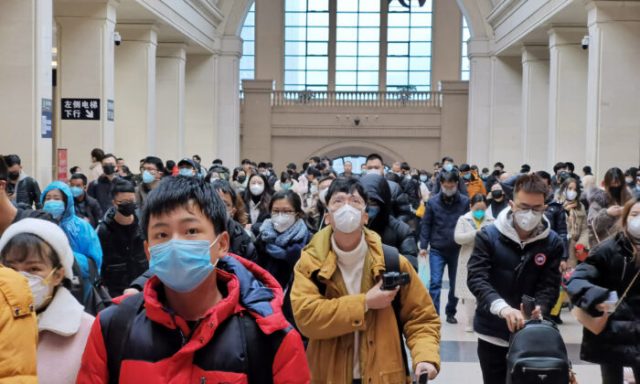
It’s no news that coronavirus cases have been confirmed in some African countries including Egypt, Senegal, Nigeria, among others. The virus formally referred to as Covid-19, has infected more than 90,000 people globally and killed more than 3,000. Mainland China, Europe, the Middle East are among the most adversely affected regions in the world. Countries are on twenty-four-hour clock working on emergency plans to protect themselves against the virus, while those with the virus coming up with measures to contain it.
In the event that the deadly virus finds its way into the country, how best can we live with it? Here are a few lessons we can borrow from the Asian countries on how to deal with the outbreak of the virus.
1. Restricting physical contact
The virus is spread through physical contact with infected people. To minimise on that we have seen countries across Asia suspended schools, cancel public gatherings, close public spaces like swimming pools, and recommend people work from to home, The Olympic too has been cancelled.
This has helped with utting some distance between people and avoiding situations where one might be close to many other people, who could be infected with the virus and become infected too.
2. Go for an early testing
Availing test facilities across the countries especially at entry points could help pick up the virus on time. South Korea has been doing a great job at it. Its health ministry has rolled out a smartphone app that reminds citizens to do a daily check of their symptoms and to notify local health officials if necessary.
It has also set up a drive-through coronavirus testing site. So people drive into a parking lot, where health workers in protective gears register drivers, check their temperatures and take samples. Authorities are able to quarantine patients and the people they have been in contact with, thus containing the virus much faster.
3. Pubic awareness campaign
It’s funny how a good number of Kenyans have no idea what coronavirus is all about, as the government has done little to sensitize the masses. Most affected countries have launched public awareness campaigns, with their governments spreading tips on how to keep good hygiene.
Washing your hands often with soap and water for at least 20 seconds, covering your mouth and nose when you sneeze or cough, avoiding touching your eyes or mouth with your hands, and being cautious of the surfaces you touch are among the most practical ways to keep the virus away.
4. Allow people to work from home
This could hurt many businesses especially those in the line of manufacturing, but they can work in more flexible hours. Those who can work from home should be allowed to. While working remotely is not practical for many customer service industries, the use of modern technology like video conferencing will have to be the way out.
5. Refrain from panic buying
In Hongkong, supermarkets toilet rolls were sold out, as people were buying in bulk, even when its government announced that it will fix the situation folks went on. Apart from toilet rolls, they were also snatching up face masks, hand sanitizer, cleaning supplies, and food staples like rice. Panic buying takes away critical supplies for front liners and health care workers and causes unnecessary chaos, fear, and even led to the crime.
